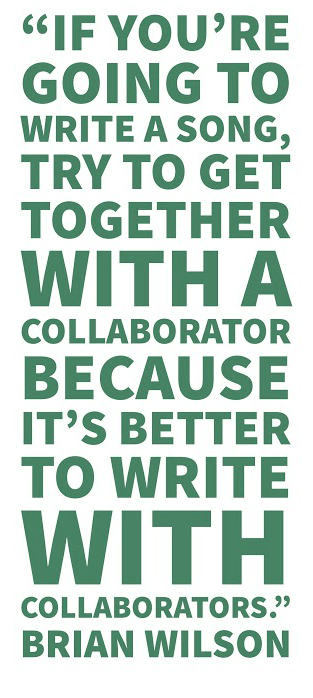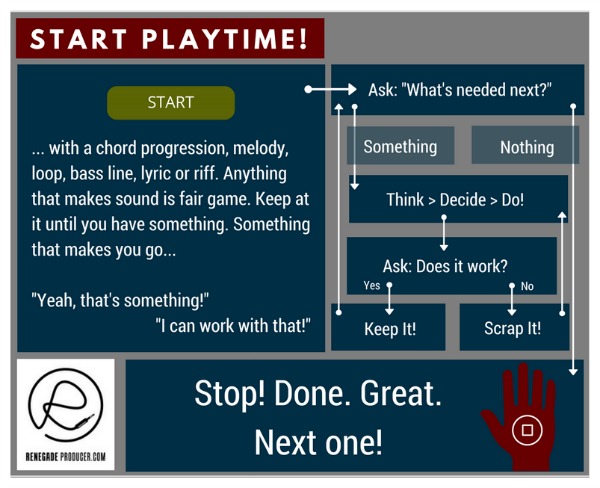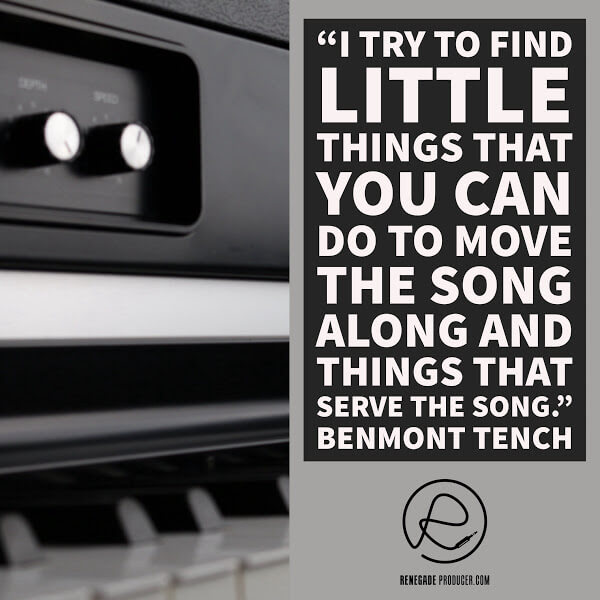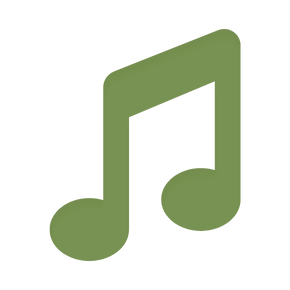25-step music production process checklist and video workshop >>>
33 Top Tips for Songwriting + Action Steps to Take Straight Away:

You probably already know that a list of tips for songwriting could stretch to Mars and back and still not cover all aspects of the art and craft. To learn a bunch of tips won't however make you a better songwriter, unless you apply what you learn.
With that in mind I've kept this list down to 33 tips. More importantly, you'll find action steps you can take to apply these tips straight away. Many people will scan the tips for songwriting below. Most won't take the action steps suggested. Make sure you're not one of them!
Now, let's get cracking...
Tip #1: Start!
Make a habit out of it. Start over and over and then start again. This is one of the core songwriting muscles you need to flex on the regular. Keep it well-trained. Start new songs as often as possible. If you can do just one thing for your songwriting then this is it. All the other tips for songwriting on this page below become irrelevant unless you are able to start new songs.
Take Action! Start a new song a day for 30 days in a row. Just melody and basic chords are fine. The point is to get used to starting songs. It's tough. Keep it up!

Tip #2: Record!
Every. Thing.
Ideas, melodies, lines, themes, titles, experiences, doodles, noodles, you name it. Record it all. I warned you. It can and will be gone in seconds. Get it in the bag. Everything!
Take Action! Set up your capture tools. Pen, paper, everywhere. Phone. Portable recorder. DAW. Make sure you're able to capture what you need, where and when you need to.
Tip #3: Play!
Your instrument, yes. Beyond that, play with words, with musical devices, with different progressions, themes, keys, scales, tempos. Give yourself permission to play for play's sake. Forget about writing a song at times and just jam, sketch, noodle and experiment as much as possible with your music and lyrics.
Take Action! Take 90 minutes to just play around with musical and lyrical ideas. Do whatever you want. Just play for play's sake. Amuse yourself. Sounds silly, I know. Do it in spite of that. 90 minutes and no less.
Tip #4: Write!
Words are your stock-in-trade. The more you use them, the better you'll start to use them.
Take Action! Write as often as you can. Keep a journal. Write down your dreams. Create a list of potential song titles. Take any opportunity you can to write creatively. Blog. Tweet. Write poems, haiku, short stories. Whatever you want. Just write!
Tip #5: Read!
Literature provides fertilizer for the songwriter's imagination. The more you read, the more you have to draw from when it comes to new ideas. Fiction, especially, provides a great hunting-ground for songwriters. Read far and wide. From ancient myths to fairy tales to novels to poetry to short stories. Feed your mind to fuel your inspiration.
Take Action! Read! You probably do already. If you don't, start today.
Tip #6: Specialization is for Insects:
Songwriting demands that you do many different
things well. The main five areas of focus are dictated by the main aspects of the song: Lyrics, melody, harmony, rhythm and form. You're probably better in some areas than in others. Practice the skills you're not
good at to balance out your abilities.
Take Action! Rate your songwriting skills for lyrics, melody, harmony, rhythm and song structure. List these skills from worst to best and then start to learn more about, and practice, each skill going down the list.

Tip #7: Impose Limitations:
End every verse with the same line. Start every line of your verse with the same two words. Stick to only three chords. Choose a character. Choose a title. Restriction breeds progress in songwriting because it has the ability to set direction and make decisions easier.
Take Action! Set your limitation. Start every line of your verse with the same words.
Everybody knows that the dice are loaded
Everybody rolls with their fingers crossed
Everybody knows that the war is over
Everybody knows the good guys lost
Everybody knows the fight was fixed
The poor stay poor, the rich get rich
That's how it goes
Everybody knows
The possible limitations are endless! Create 5 new limitations of your own right now.
Tip #8: Immerse:
Open up. Absorb. You must, as a songwriter, at times, immerse yourself in topics and ideas and use various sensual influences to invoke the spirit of the song you want to capture. Use any media related to your topic. Make visual storyboards around your theme, title or album concept. Read. Watch videos. Explore. Go where the winged-disc of your interest and curiosity leads you.
Take Action! Choose a theme right now. Create a visual storyboard based around your theme. You could use Pinterest for this. Watch videos related to your theme. The idea is to surround yourself with the information cloud of your theme and to absorb it all. No editing. Just hunt, gather and absorb.
Tip #9: Incubate:
After immersion. Leave it all aside. Let it stew. Do something else.
Keep the song lightly in the back of your mind but pretty much forget
about it.
Take Action! Do something else. Take a walk. Clean the house. Play with your pet iguana. Just leave your songwriting aside to allow your unconscious mind to synthesize new ideas. Just be prepared though...
Tip #10: Illuminate:
Aha! Ideas for a song will come. As you cook. In the shower. On the highway. Be prepared to capture the ideas. Do not, I repeat, do NOT trust your memory for this. The human brain is good at creating. Memory and recall? Probably not the brain's best skill. Notepads and pens. Phone. Recorder. DAW. Be ready to capture your illuminations.
Take Action! The Muse is a fickle mistress. She visits when she wants. You cannot force ideas. You can only be prepared to capture them when they visit you. Luckily, you've taken action in Tip #2 already, so you're sussed. Right? ;-) It may also be possible to further develop your ability to notice creative ideas with practices which calm the waters of your mind. You know the ones: Try out Yoga, Meditation and other similar exercises. Ohmmmmmmm!
Tip #11: Reference:
What works already? Songs you like. Deconstruct them. Analyze them. Recreate them. Reverse engineer that which already works for your own benefit.
Take Action! Create a playlist of songs you love. Analyze each song and note your reaction to different parts or elements of the song. Compare the songs to one another. Do you notice any similarities? Take note. This helps you get more articulate about what you like and why you like it. Your taste in other words. Develop it and learn to trust it.
Tip #12: The first draft? Get back to work!
It's been said that great songs aren't written, they're re-written. Once in a while, a fully-formed song will just fall into your lap. Most other times the first draft will suck. Editing, especially cutting and replacing stuff, isn't much fun. Your song however deserves to be worked over a few times to make sure it's as good as it can be.
Take Action! Write, re-write, re-write, re-write. Rinse and repeat until you have something great. Is every word the best word it could be? Can every line stand on it's own merit? Does anything sound awkward or forced? Is there a better chord for that final bar? Can the melody be less vanilla? Take it syllable-by-syllable, word-for-word, line-by-line. Strike through anything that isn't 100% there and replace it. It's almost never the first draft, rarely even the second or third.

Tip #13: KISS - Keep It Simple, Songwriter:
You
know the cliche you often hear about simplicity and great songs. It's a
cliche because it's true. Simple is, almost always, better. Work on
economy when you write. What you leave out can be more important than what you leave in.
Take Action! Try writing a few nursery rhymes. Nursery rhymes have to be simple and catchy. Yes, you have your Bohemian Rhapsodies but in most cases simple and catchy does the trick. Figure out how you can use what makes nursery rhymes work for your own songs.
Tip #14: Collaborate:
A: It's fun. B: You learn due to the difference in perspective. C: It may just be less work for you. Wahey!
Take Action! Find at least one collaborator. Most big cities have tons of meet-ups for songwriters. It's also easier than ever to collaborate online.
Tip #15: Devil's in the Details:
We remember details. You'll start your song off in broad strokes. The closer you get to the end of the process the finer your strokes need to get. Attention to detail will take your song from good to great. That's why it's...
Little (size) Red (color) Corvette (specific make of car)
Famous Blue Raincoat
Bad Moon Rising
Take Action! Look at your favorite songs with your analytical hat on again. Pay attention to the details in both the lyrical and musical content this time. Make note of the details which catch your attention. Infuse a similar level of detail into your own songs.

Tip #16: Tell a story:
Beginning. Middle. End. Use tense and plot in your lyrics to lead the listener through your tale.
Example:
In Bob Dylan's "Tangled Up in Blue" the first verse starts in the past...
"Early one mornin’ the sun was shinin’
I was layin’ in bed"
This remains the case for the other verses apart from the last one which skips to the present...
"So now I’m goin’ back again
I got to get to her somehow"
Take Action! Go over your song again. Does it give you sense of movement through different times and places? Can you help the listener orient themselves a bit more with words which specify time or place? Pay attention to how other songwriters use storytelling techniques in their lyrics.
Tip #17: Steal Like an Artist:
Nothing is new under the sun. All artists borrow and steal. Just make sure you know what to steal. Some elements of commercial music fall under
copyright. Others don't. Song structure and chord progressions are
usually fair game. This is not legal advice ;-)
Take Action! Choose a song you really love and steal the chord progression or song structure. Write a new song based on this. Become a magpie for ideas you can steal too. Things you overhear, films, books, other songs. Read Steal Like an Artist.
Tip #18: Start with the End in Mind:
A rough idea of the end result you want creates a future anchor to help pull you towards the completion of your song. A song title and a general theme can make it easier to write your song.
Take Action! Start a journal where you can keep a list of ideas, themes and titles. Choose a title or theme and imagine what you want your song to be like when it's done. Write a short summary paragraph describing your completed song before you start your songwriting.
Tip #19: Ask What's Next...
.... until the answer is nothing: See the process diagram below...

Tip #20: Master Melody:
The ability to write good melodies seems a scarce one. You can however improve your own melodies with practice. Dissect and study melodies you love. Observe the note lengths, the contour of the melody in your piano roll, the note intervals used and how the melody relates to the chords. Block out some occasional time to just work on melodies. Make a habit of singing new melodies as much as possible. Train your melody muscle!
Take Action! A: Select 5 songs with melodies you love. Draw out the melodies on paper or in your DAW piano roll. Pay attention to the contour of the melody. Look at the note intervals and note lengths used. Write down anything you notice and try to create new melodies based on the techniques you discover.
B: Write 20 new melody lines in 40 minutes. Just melodies. This is to train your speed so perfection isn't needed. The point of this is just to get 20 melodies done.
Tip #21: Study Song Structure:
Why are most pop songs around 3 to 5 minutes long? You'd be correct to say it's because of the time limitations imposed by 78 rpm and 45 rpm discs back in the 1950s. More important for you as a songwriter is to realize that this length is what people are used to. It works for that reason.
How long does it take for the first chorus to kick in? Less that a minute? Again, this works.
Song structure plays a crucial role in your songwriting. Master it!
Take Action! Use the songs you love and the songs considered classics. Do it by ear with pen and paper or use the markers in your DAW. Mark the sections. Verse, chorus, bridge, intro, outro, pre-chorus, build, drop. Which instruments are used where? What's the key? Tempo? Note it all down and apply it to your own work.
See Hit Songs Deconstructed Reports for great examples of this type of analysis.
Tip #22: Develop Devices:
Metaphor, simile, alliteration, hyperbole, allegory. Riffs, call & response, inversion, cyclic patterns, repetition. These and other devices will add new dimensions to your songwriting.
Apply them!
Take Action! Add new lyrical or literary devices and musical devices to your songwriting skill-set as often as you can.
Tip #23: Quantity Matters:
Get the stale, murky water out of the pipes so the fresh water can flow. The best is yet to come! The more you write the better you begin to write. This is not rocket surgery.
Take Action! Challenge yourself to write two complete new songs a day and take yourself up on the challenge. Yes, it's hard! Do it regardless. Be ruthless.
Tip #24: Become a Master of Hooks:
OK. So, hook may just be the most overused and over-hyped word in songwriting. Maybe because it's a four-letter word that ends with a "k". We like those words. I'm sure you can think of a few right now. Still, hooks are important. The secret is there's no secret sauce. Make it catchy for yourself and pray to the muses it's catchy for other people too. Your by-now extensive knowledge of musical devices will see you through.
Take Action! Create 20 new hooks in an hour. See this post by Gary Ewer for a few examples of how to write hooks. Write one song that has at least 5 different hooks.
Tip #25: Learn to Play:
Modern music tech makes it possible to write and produce music without playing an actual instrument. There is nothing wrong with this. The ability to play and write on a musical instrument however has many benefits for a songwriter or music producer.
Take Action! Pick up a musical instrument if you don't already play. Guitar, piano, keys. Choose your weapon. Learn to play your favorite songs. Start to write on your instrument. Then, maybe, learn another. In no possible Universe can this be a bad thing for your songwriting.
Tip #26: Inspiration is for Amateurs:
Ass in chair. Every day. Rain or shine. This is work. Yes, it involves play but unlike a child you're playing within a larger context of productive songwriting. Create a routine. Keep to it. Consistent and constant. That's where inspiration happens.
Take Action! Set aside at least 90 minutes for songwriting every day. Try make it at the same time each day to get into a routine. Do it until not doing it feels uncomfortable. Skip a day or two? All good. Just get straight back to it.

Tip #27: Write Lyrics Like you Talk:
I mean, do what you want of course, but keep in mind that pop lyrics don't have to be poetic. Think conversational. Write like you talk.
Example:
Tom Petty has this skill down to a science...
"Let me run with you tonight
I'll take you on a moonlight ride
There's someone I used to see
But she don't give a damn for me"
Take Action! Choose a person, real or imagined, to write for. Imagine you're across the table from them. Say the lyrics out loud to them. Does it sound natural? Awkward? Forced? Change what you need to make it sound and flow like a conversation.
Tip #28: Use Characters:
The use of characters allows you to free yourself from your own ego and take on a new perspective with ease. Only the Mad Hatter could write the Unbirthday Song!
Take Action! Take on a fictional character, one that exists or one that you've made up, and write from their point of view. Then, write another song about them, instead of as them. Form your character well and your song almost, just almost, writes itself.
Tip #29: Free Associate:
Free association allows you to form word and idea clouds to use as fodder for your lyrics.
Take Action! Choose your topic or theme or title. Write it down. Look at it and then write down whatever comes to your mind for 20 minutes. No editing. Keep writing. Force yourself to write some more when you feel you cannot. Now take your brainstorm results and craft some fresh lyrics!
Tip 30: Cut It Up:
Songwriting a la Burroughs, Bowie, Cobain. The cut-up technique is a fine way to introduce
novelty into your lyrics at random.
Take Action! Watch this:
P.S. Google "cut up machine" for software that allows you to do cut-ups.
Tip #31: Get Oblique:
Brian Eno's Oblique Strategies deck of cards. Simply pull a card when you feel stuck or need fresh direction. Another fun way to insert a bit of random into the songwriting process.
Take Action! Get it! The physical deck has a magical feel to it, so get it if you can. There is an online version that also does the job.
Tip #32: Get Educated:
There are some excellent free songwriting resources available online today. Try to set some time aside to learn new techniques and tips for songwriting on a regular basis.
Take Action! Google these 3 songwriting educators for a good start: Ralph Murphy, Pat Pattinson, Paul Zollo. You'll find more songwriting resources listed at the bottom of this post.

Tip #33: Finish!
You start songs on a regular basis and that's an essential habit to have. Now, combine the habit with it's opposite for the perfect balance. Yes, you have to finish often. Sounds pretty obvious right? Well, easy said and less easily done.
It takes little effort to fall into the habit of starting songs and then starting some more without finishing any.
You may fall out of love with your song after a while, have a mood-swing and decide to start a new song. Be careful of this tendency!
Train yourself to finish songs whether you like it or not. The point is to become a songwriter that finishes and finishes often.
Take Action! Finish as many songs as you can. You want to train your nervous system to be used the entire process of songwriting and that means finishing new songs as often as possible.
Aim for at least a song a day in the long run.
There You Have It! Now:
Take Action!
Please share this page if you like the tips for songwriting it gives! Your like, follow or share means a lot. You'll find share links further below. Thanks!


Learn to understand equalisers and frequencies to supercharge your mixing skills and get results, fast...

New producer? Learn everything you need to produce your first professional track right now...

Would you like to discover the simplest and easiest way to learn music theory as a music producer?
Share this post. Spread the knowledge so other producers can benefit too:
- Renegade Producer
- Music Production
- Songwriting Tips
ⓘ Some pages contain affiliate links so I might earn a commission when you buy through my links. Thanks for your support! Learn more


